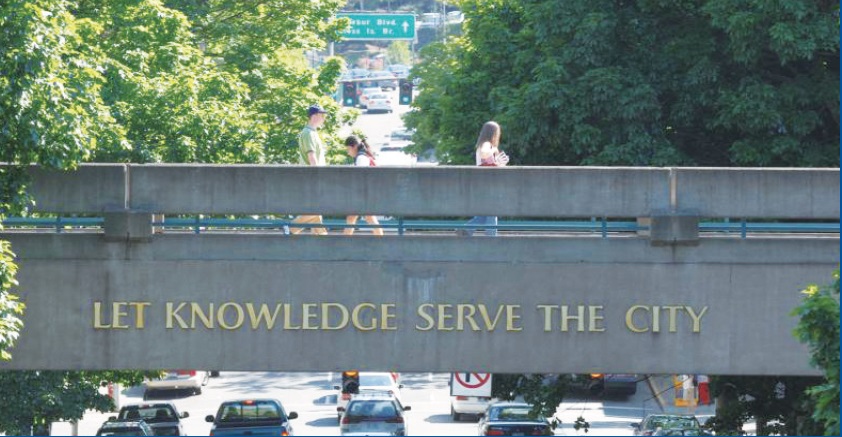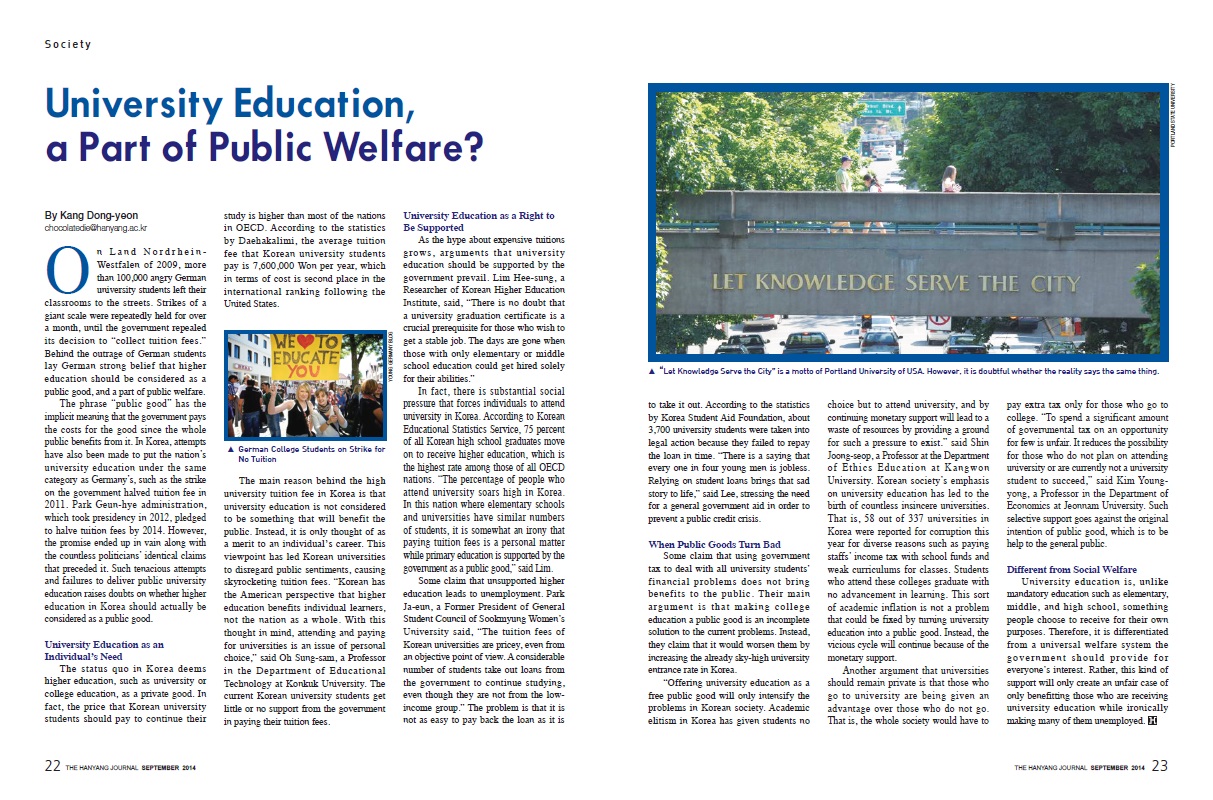
On Land Nordrhein Westfalen of 2009, more than 100,000 angry German university students left their classrooms to the streets. Strikes of a giant scale were repeatedly held for over a month, until the government repealed its decision to “collect tuition fees.” Behind the outrage of German students lay German strong belief that higher education should be considered as a public good, and a part of public welfare.
The phrase “public good” has the implicit meaning that the government pays the costs for the good since the whole public benefits from it. In Korea, attempts have also been made to put the nation’s university education under the same
University Education as an Individual’s Need
The status quo in Korea deems higher education, such as university or college education, as a private good. In
The main reason behind the high university tuition fee in Korea is that
University Education as a Right to
As the hype about expensive tuitions grows, arguments that university education should be supported by the government prevail. Lim Hee-sung, a Researcher of Korean Higher Education Institute, said, “There is no doubt that a university graduation certificate is a crucial prerequisite for those who wish to get a stable job. The days are gone when those with only elementary or middle school education could get hired solely for their abilities.”
In fact, there is substantial social pressure that forces individuals to attend university in Korea. According to Korean Educational Statistics Service, 75 percent of all Korean high school graduates move on to receive higher education, which is the highest rate among those of all OECD nations. “The percentage of people who attend university soars high in Korea. In this nation where elementary schools and universities have similar numbers of students, it is somewhat an irony that paying tuition fees is a personal matter while primary education is supported by the government as a public good,” said Lim.
Some claim that unsupported higher education leads to unemployment. Park Ja-eun, a Former President of General Student Council of Sookmyung Women’s University said, “The tuition fees of Korean universities are pricey, even from an objective point of view. A considerable number of students take out loans from the government to continue studying, even though they are not from the low income group.” The problem is that it is not as easy to pay back the loan as it is to take it out. According to the statistics by Korea Student Aid Foundation, about 3,700 university students were taken into legal action because they failed to repay the loan in time. “There is a saying that every one in four young men is jobless. Relying on student loans brings that sad story to life,” said Lee, stressing the need for a general government aid in order to prevent a public credit crisis.
When Public Goods Turn Bad
Some claim that using government tax to deal with all university students’ financial problems does not bring
"Offering university education as a free public good will only intensify the problems in Korean society. Academic elitism in Korea has given students no choice but to attend university, and by continuing monetary support will lead to a waste of resources by providing a ground for such a pressure to exist.” said Shin Joong-seop, a Professor at the Department of Ethics Education at Kangwon
Another argument that universities
Different from Social Welfare
University education is, unlike mandatory education such as elementary, middle, and high school, something


